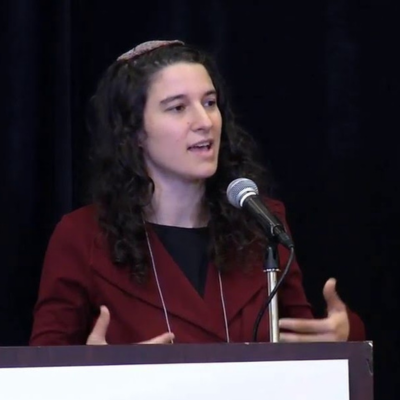Every day is as bad as the day before. Sometimes the nature of the work changes, but all of it is difficult, tedious, and for the most part, meaningless.¹ It has been like this not just for years, not just for all of our lifetimes, but for all of our parents’ lifetimes, and their parents’ lifetimes, too. To the extent that we dreamed of a different future, we dreamed of being like the bosses, with someone lower than us to spit on.
We hadn’t known that it could get much worse, but it has lately, when we started having to hide our children after Pharaoh’s most recent decree. Then, to the extent that we dreamed, we dreamed of our toddlers being able to play outside. But to be honest, we didn’t dream much. Then here comes this fellow, Moses. He looks like us, sort of, but speaks like one of them. We hear he lived in Pharaoh’s palace for a few years. Certainly, he’s never spent a day in his life dealing with what we deal with every day. But we figured he wouldn’t make things worse. Since he spoke like them, we thought maybe Pharaoh might even listen.
Well, he’s not going to fool us twice. Whatever he said to Pharaoh, not only is nothing better, but now we have to gather the straw to make our bricks. No time for dreaming. We are out of patience with his grand proclamations. Best to just keep your head down and hope to get by…
Find more commentaries on VaEra.
I imagine this to be the perspective of the average Israelite at the onset of Parshat VaEra. At this moment, the gulf between the Divine perspective on the nearness of redemption and the perspective of the Israelites in bondage could not be wider. Their self-styled liberator has just made everything worse. The parshah opens with God instructing Moses to reveal the divine plan for liberation. But the people cannot hear it. As it says in Exodus 6:9, “But when Moses told this to the Israelites, they would not listen to Moses, their spirits crushed by cruel bondage.” They are so impatient for things to be different (according to the medieval commentators Ramban and Ibn Ezra on this verse) that they are unable, ironically, to imagine that things could be different.
It falls to Moses and Aaron, the bearers of Divine vision, to be the protagonists who move the story toward liberation. For the rest of the parshah, as the first seven plagues supernaturally unfold, the Israelites’ perspective is not mentioned again. It is arguably irrelevant.
Alas, these days the Divine tends not to manifest so supernaturally. It falls to us, with the capacities and limitations of our perspective, to be the protagonists of history.
Find more commentaries on Israel/Palestine.
In this moment when I am writing, the Israeli-Palestinian conflict seems more entrenched than ever, and authoritarian takeover in the U.S. within the next year is a distinct possibility. What we believe to be possible will impact what we are willing to work for and will therefore shape the contours of what is possible. We cannot afford to be so “impatient” that our capacity for imagination shuts down.
As Rabbi Sharon Kleinbaum has often said, “People tend to overestimate what can be accomplished in one year, and to underestimate what can be accomplished in 10.” I’d add that those 10 years of effort aren’t starting now but are already well underway.
So in these moments of bleakness, it’s important that we respond not only by saying “no” to the most egregious violations of human rights (whether perpetrated against us or in our names), but that we consciously make the effort to imagine visions for how the world could be more just and more peaceful. Moses was surely the most unlikely liberator that the ancient Israelites could imagine, but his arrival was nonetheless the catalyst for their redemption.
In this moment, we do not know how things will turn out, in Israel or the U.S. But if Torah and history have anything to teach us, it is that whatever happens is not inevitable, and the catalyst will not be something we could have predicted in advance. This moment, like all moments, is full of possibility. It will be those with proactive vision who will move history, just as it always has been.
¹ See Rashi’s definition of avodah b’farech, “rigorous work,” on Leviticus 25:43.
Ruhi Sophia Motzkin Rubenstein is the rabbi of Temple Beth Israel in Eugene, Ore.


